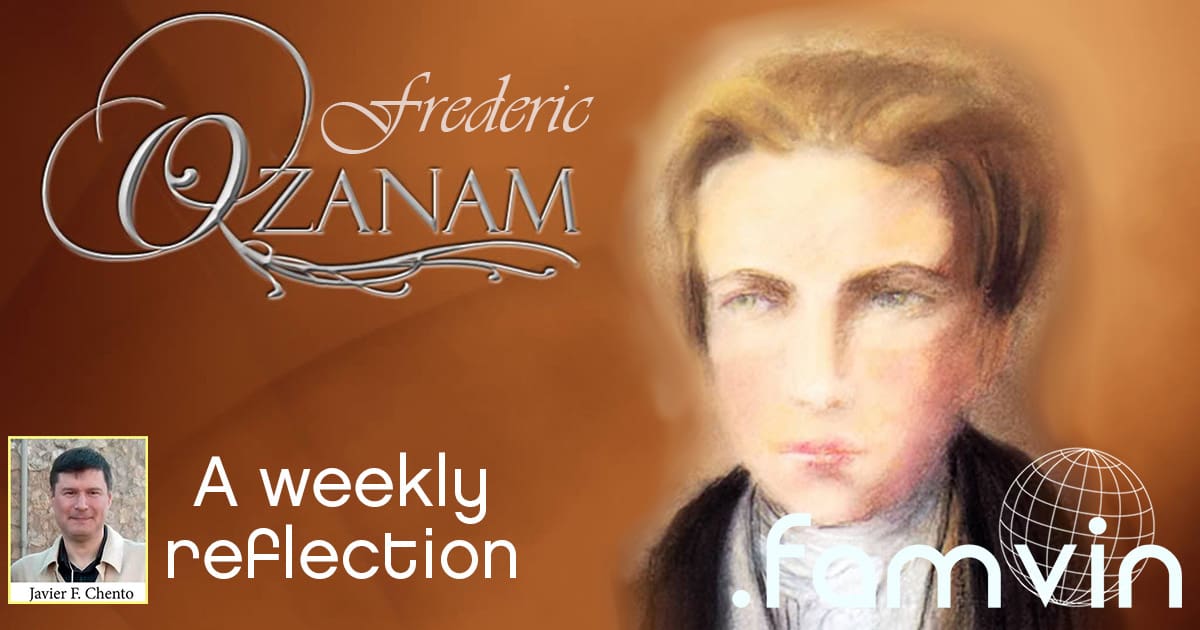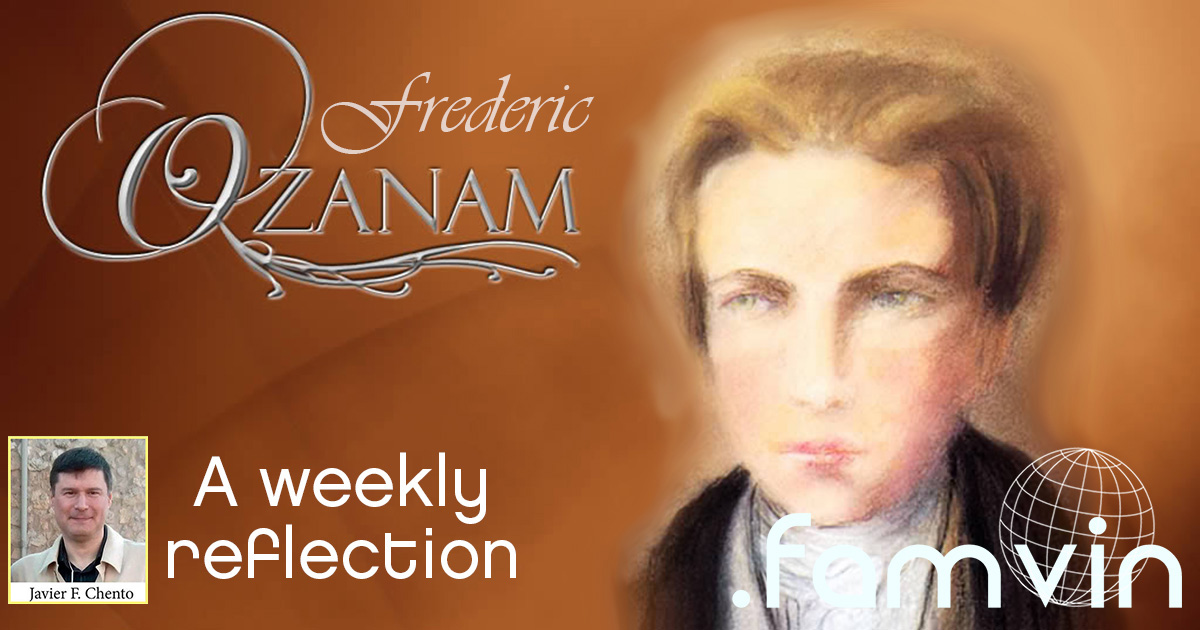Let’s Go to the Front Lines! • A Weekly Reflection with Ozanam
In those times we found ourselves invaded by a avalanche of heterodox doctrines and philosophies that were confronting us all around, and we felt the need to strengthen our faith in the midst of the assaults made upon it by the various false systems of knowledge. Some of our fellow-students were Materialists, others Saint-Simonians, others Fourierists, others Deists. When we Catholics sought to call the attention of these erring brothers to the marvels of Christianity, they said to us, ‘Yes, you have a right to speak of the past. In bygone days Christianity did indeed work wonders, but to-day it’s is dead. And you, who boast of being Catholics, what do you do? What works can you show which prove your faith, and will make us respect and acknowledge it?’ And they were right; the reproach was but too well merited. Then it was that we said to one another, ‘Let’s go to front lines! Let our deeds be in accordance with our faith.’ But what were we to do? What could we do to prove ourselves true Catholics except that which pleases God most? Succor our neighbor, as Jesus Christ did, and place our faith under the safeguard of charity.

Frederic Ozanam, inaugurating a new Conference at Florence, year 1853.
Reflection:
- April 23 marks the founding of the first Conference of Charity, seed of the Society of St. Vincent de Paul, in 1833. In this text, Federico recalled for the members of the newly created conference of Florence the time of the founding of the first Conference. The situation among Young French people was complicated. The rejection of Faith and Church was in the majority, and a multitude of more or less new philosophies were popular among university students, and society in general.
- The political and social situation was convulsed: the republic and the monarchy were alternating as political systems since the late eighteenth century, until finally the republic was imposed in 1870. What is certain is that the revolution, since 1789, triggered the definitive end of absolutism. The church was accused of being more close to Monarchy positions than supporting the Republic; this also seemed to imply that the church was more in favor to the bourgeoisie than of the popular classes. In parallel, the state, from Napoleon, fiercely charged against the Roman Catholic Church, accusing it of being controlled by the Roman pontiff, and even of being unpatriotic. The clergy was divided between supporters of Rome (called “refractory clergy”) and those who depended on French state (the “constitutional clergy”).
- Young people accused the church of having done great things in the past, but nothing remarkable in society at that time. Frederic Ozanam was deeply concerned on this accusation, “the reproach was but too well merited.” He is aware that the church was living, in general, away from social problems and the poor. So he decided, along with a small group of his friends, to do something about it: thanks to the support of Emmanuel Bailly, on April 23, 1833 (also the day of the 20th birthday of Frederic) the first meeting of the Conference of charity took place.
- From this moment, with the help of Sister Rosalie Rendu, Daughter of Charity, they begun visiting poor families, and relieving and comforting them in their poverty.
Questions for dialogue:
- Is there any comparison between the situation of the Church today to the Church in times of Ozanam?
- How are my close circles, my family, neighborhood, friends… in relation to faith? How do my close circles see the commitment of the believers to build a better world? Is it a true view of reality, that is, are we believers doing what we are called to do?
- “Let our deeds be in accordance with our faith.” Do we take seriously this concern of Frederic, in our lives? What if we were really taking it seriously?
- In addition, we can read the next paragraph (taken from Frederic Ozanam: His Life and Works, chapter VII, by Kathleen O’Meara):
A portion of the very greatest misery of the poor often proceeds from their not knowing how to help themselves out of a difficulty once they have got into it; they fall into distress through accidental circumstances, arising from their own fault or other people’s, and they are too ignorant to see their way out of it. The law frequently has a remedy ready for them, but they don’t know this, and there is no one to tell them. Their one idea when they fall into distress is to hold out their hand for an alms, a system which generally proves as ineffectual as it is demoralizing. M. Bailly suggested to his young friends that they should try to remedy this lamentable state of things by placing their education, their intelligence, their special knowledge of law or science, and their general knowledge of life, at the disposal of the poor; that instead of only taking them some little material relief, they should strive to win their confidence, learn all about their affairs, and then see how they could best help them to help themselves.
Now, we can discuss those sentences in bold, and ask ourselves:
- What points about Systemic Change, that Vincentians are working on nowadays, do we find in what we have just read?
- Are we working for the poor “to help themselves”?
Javier F. Chento
![]() @javierchento
@javierchento
![]() JavierChento
JavierChento








0 Comments